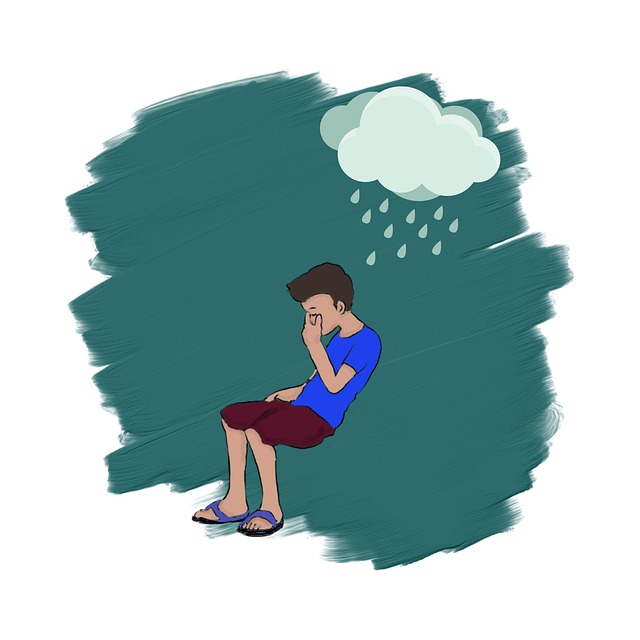Burnout among therapists at Louisville Child Abuse Therapy is a pressing issue due to intense emotional labour, heavy caseloads, and challenging cases. To combat this, the centre can foster a culture of resilience through stress reduction methods like mental health days, risk assessment workshops, and stress management training. These initiatives aim to support therapist well-being, prevent burnout, and enhance long-term quality care for vulnerable children. Evidence-based strategies, including cultural sensitivity, social skills training, crisis intervention guidance, and peer support networks, are vital in building a robust and sustainable Louisville child abuse therapy service.
In the demanding field of Louisville child abuse therapy, healthcare providers face unique challenges that can lead to burnout. This article explores comprehensive strategies to prevent burnout among practitioners working with vulnerable children and families. Through a multifaceted approach, we delve into understanding burnout’s nuances from a Louisville child abuse therapy perspective, identifying risk factors, fostering supportive work environments, implementing evidence-based practices, and promoting resilience. By adopting these strategies, healthcare providers can mitigate burnout and enhance their ability to offer quality care.
- Understanding Burnout: The Louisville Child Abuse Therapy Perspective
- Identifying Risk Factors for Healthcare Providers in Child Abuse Cases
- Creating a Supportive Work Environment to Combat Burnout
- Evidence-Based Strategies for Burnout Prevention in Clinical Settings
- Building Resilience: A Guide for Louisville's Child Abuse Therapists
Understanding Burnout: The Louisville Child Abuse Therapy Perspective

Burnout among healthcare providers, especially therapists, is a growing concern, particularly in fields like Louisville Child Abuse Therapy where emotional labour is intense and continuous. It’s more than just feeling stressed; it’s a state of physical and emotional exhaustion, cynicism, and reduced professional efficacy. In the context of Louisville Child Abuse Therapy, understanding burnout means recognizing the unique challenges faced by professionals working with vulnerable populations experiencing trauma. These include high caseloads, emotionally taxing cases, and often, limited resources.
Preventive measures are crucial to mitigate these risks. Organizations like Louisville Child Abuse Therapy can foster a culture of resilience through stress reduction methods tailored to their staff’s needs. This could involve offering regular mental health days, implementing robust risk assessment strategies for mental health professionals, and organizing stress management workshops. Such initiatives not only support individual therapists’ well-being but also enhance the organization’s ability to provide quality care in the long term.
Identifying Risk Factors for Healthcare Providers in Child Abuse Cases

Healthcare providers working with child abuse cases face unique challenges that can significantly impact their well-being. Identifying risk factors is crucial for preventing burnout and ensuring they can provide optimal care. Many professionals in this field experience high levels of stress due to the sensitivity and complexity of the issues at hand, including witnessing trauma and dealing with difficult families.
Louisville Child Abuse Therapy centers often recognize that emotional regulation and effective stress management are key. They offer workshops and support services through organizations dedicated to helping healthcare providers cope. These initiatives promote resilience, encourage healthy work-life balance, and foster a culture of support within the community, ultimately aiming to safeguard the well-being of those who dedicate their careers to protecting vulnerable children.
Creating a Supportive Work Environment to Combat Burnout

In the high-pressure field of healthcare, preventing burnout among providers is paramount. One effective strategy lies in cultivating a supportive work environment that prioritizes mental wellness and fosters a sense of belonging. This involves implementing policies promoting work-life balance, such as flexible schedules and reasonable caseloads. Additionally, creating spaces for open communication and collaboration among colleagues can significantly alleviate stress. Healthcare organizations in Louisville, notably focusing on areas like child abuse therapy, can enhance their support systems through regular staff meetings that encourage peer-to-peer support and professional development opportunities.
Cultural competency training plays a pivotal role in this equation by fostering an inclusive atmosphere where diverse healthcare providers feel valued and heard. By integrating these initiatives, healthcare facilities not only mitigate burnout but also improve patient care. Furthermore, public awareness campaigns can educate both professionals and the community about the signs and impacts of burnout, emphasizing the importance of mental wellness in healthcare delivery.
Evidence-Based Strategies for Burnout Prevention in Clinical Settings

Preventing burnout among healthcare providers is a growing concern, especially within clinical settings like Louisville Child Abuse Therapy. To combat this issue, evidence-based strategies have emerged as effective tools. One such strategy is incorporating Cultural Sensitivity in Mental Healthcare Practice, which recognizes and respects diverse cultural beliefs and values. This approach not only enhances patient care but also fosters a supportive environment for providers, reducing the risk of burnout.
Additionally, building resilience and providing Social Skills Training are pivotal. Resilience-building interventions equip healthcare professionals with coping mechanisms to manage stress and emotional challenges. Social Skills Training, on the other hand, improves interpersonal interactions, communication, and empathy, creating a more positive work environment. These strategies collectively contribute to a healthier mental state for providers, ensuring they can offer optimal care to their patients.
Building Resilience: A Guide for Louisville's Child Abuse Therapists

Louisville’s child abuse therapists face unique challenges due to the emotional demands of their work. Building resilience is a crucial strategy to combat burnout and maintain the well-being of these professionals. A comprehensive crisis intervention guidance can empower therapists to effectively manage stress, fostering a culture of support within the community.
Implementing practices for stress management and encouraging positive thinking are integral parts of this process. By prioritizing self-care and offering peer support networks, therapists can navigate the complexities of their role with enhanced resilience. Such initiatives aim to ensure Louisville’s child abuse therapy remains accessible and sustainable over time.
Louisville Child Abuse Therapy highlights the importance of proactive burnout prevention strategies among healthcare providers. By understanding the unique risks and implementing supportive work environments, evidence-based practices, and building resilience, we can significantly reduce burnout rates within this critical field. These strategies not only benefit individual therapists but also ensure the continued provision of quality care for children who rely on Louisville Child Abuse Therapy services.














